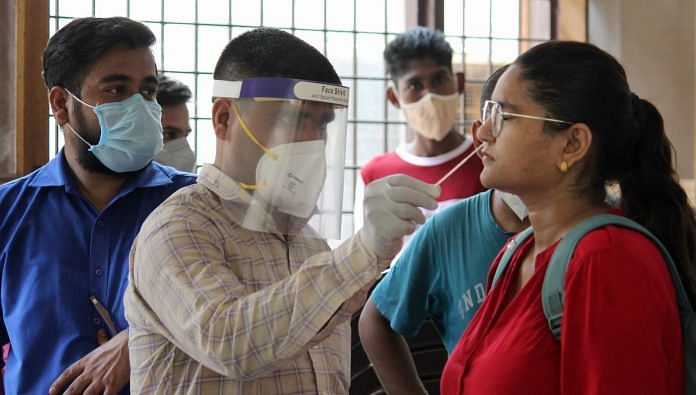Bengaluru: Six months into the coronavirus pandemic and researchers continue to unravel the mystery of how this virus works as well as the science behind treating Covid-19.
Here are some recent scientific findings around Covid-19.
Chloroquine linked to psychiatric side effects
The use of chloroquine, an antimalarial drug being tested to treat Covid-19 in some countries, is associated with serious psychiatric side effects, according to a review.
In a letter to the editor of The Journal of Clinical Psychiatry, the authors of the review have quoted findings from several studies that were conducted from May 2020 to as far back as 1993.
They also detailed a recent study based on the US Food and Drug Administration (FDA) Adverse Event Reporting System’s data which had found that there were 4,336 adverse event cases following the use of chloroquine, out of which 520 (12.0 per cent) reported neuropsychiatric episodes.
The review also says exposure to chloroquine has been associated with amnesia, delirium, hallucinations, depression, and loss of consciousness. It has, however, not been linked to suicide, psychosis, confusion or agitation.
The authors have said that their review was conducted for the public to be better informed about the risks of using chloroquine.
Also read: What is ‘Long Covid’ and why some patients who have recovered continue to feel ill for months
Preprint indicates long-term stability for SARS-CoV-2 mutations
A new German study has shown data from experiments with the novel coronavirus and its mutations, and the conditions under which these mutations evolve. It has found that the quasispecies or the immediate mutations are “remarkably stable”.
The study was undertaken to assess the changes that would be needed in the vaccine development process.
It was found that some mutations occurred consistently in Vero E6 cells, derived from the kidneys of African green monkeys. But these mutations remained largely stable.
The research is not peer reviewed and was uploaded to bioRxiv as a pre-print.
Antibody prevalence same in New York’s health workers, public
The prevalence of SARS-CoV-2 antibodies has been found to be only a little higher among healthcare workers than the general public, after the former were given personal protective equipment (PPE). This was found by researchers from a voluntary antibody screening in New York.
Adding to the already prevalent studies on antibodies, this one suggests that PPE improved protection only marginally.
Experts have, however, cautioned against misinterpreting this data.
The study had invited volunteers to get tested. Those who suspected that they were exposed to the virus had a high likelihood of having antibodies too.
The findings were published in the journal JAMA.
Chinese researchers identify inhalable antibodies from camels
Pharmaceutical researchers in China have identified 381 nanobodies from four SARS-CoV-2-immunised camels that were able to block the virus. Nanobodies are “single-domain” antibodies that bind selectively to a specific antigen.
The nanobody called Nb11-59 was found to be the most stable, and the researchers have stated that it could be potentially used as a prophylactic. It also has the potential to be delivered through the method of inhalation, they write.
The research was led and funded by a pharmaceutical company based out of Shanghai. The study is available as a preprint.
Also read: 27 genes in your body now have a new name because Microsoft Excel confused them for dates



